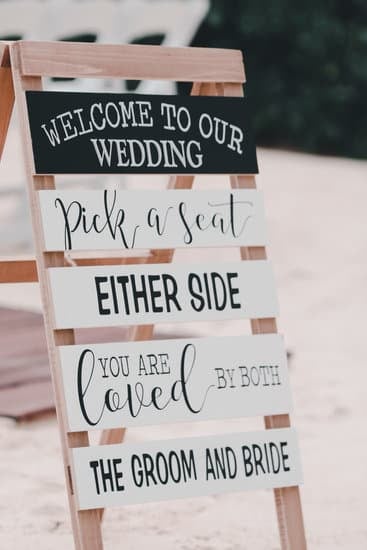What do widows do with their wedding rings after the loss of their spouse? For many widows, their wedding ring holds a deep emotional significance that goes beyond its material value. It represents love, commitment, and cherished memories, making the decision about what to do with it a deeply personal and complex one.
For widows, the wedding ring often serves as a powerful symbol of their marriage and the love they shared with their spouse. It can be a source of comfort and connection to the past, but it can also bring up feelings of grief and longing. The emotional weight of deciding what to do with the wedding ring is unique to each individual and can be influenced by cultural, traditional, practical, financial, and personal factors.
Some widows may choose to continue wearing their wedding ring as a way of honoring their spouse’s memory, while others may find meaning in repurposing the ring into something new or finding creative ways to keep it as a legacy. Additionally, there are those who decide to let go of the ring as part of their healing process and finding closure.
In this article, we will explore the emotional significance of wedding rings for widows and provide insight into the various considerations and options for navigating this deeply personal decision.
Cultural and Traditional Practices for Widows and Their Wedding Rings
In many cultures around the world, the wedding ring holds a significant and symbolic meaning, especially for widows. The tradition of wearing a wedding ring is deeply ingrained in various cultural practices, and widows often find themselves faced with difficult decisions related to their wedding rings after the loss of their spouse.
Cultural Beliefs and Practices
Different cultures have varying beliefs and practices regarding widows and their wedding rings. In some cultures, removing the wedding ring after the death of a spouse is considered taboo, while in others it is seen as a necessary step in the mourning process. Understanding these cultural nuances is essential for widows as they navigate their own feelings and desires concerning their wedding rings.
Traditional Customs
Some traditional customs dictate that widows should continue to wear their wedding rings as a way to honor their deceased spouse. In other traditions, there may be specific rituals or ceremonies associated with the handling of the wedding ring after the loss of a spouse. It’s important for widows to consider these traditional customs and how they align with their personal beliefs and emotions.
Family and Community Expectations
Family members and communities may also have certain expectations or norms regarding what widows should do with their wedding rings. This can add an additional layer of complexity for widows who are already grappling with grief and loss. Navigating these external pressures while honoring one’s own emotional journey is a delicate balance that many widows face.
Practical Options for Repurposing Wedding Rings After the Loss of a Spouse
When a spouse passes away, widows are often faced with the question of what to do with their wedding rings. For some, the emotional significance tied to the ring makes it difficult to part with, while others may feel that repurposing the ring can be a meaningful way to honor their spouse. There are various practical options for widows when it comes to repurposing their wedding rings after the loss of a spouse.
Selling or Redesigning
One practical option for widows is to sell the wedding ring or have it redesigned into a new piece of jewelry. Selling the ring can provide financial support during a difficult time, and some may find solace in knowing that the ring will be appreciated by someone else. On the other hand, redesigning the ring into a new piece of jewelry allows widows to keep the sentimental value of the original ring while creating something new and personal.
Creating Heirlooms
Another option for repurposing wedding rings is to create heirlooms for family members. This can include incorporating small elements of the ring into new pieces of jewelry for children or grandchildren. By doing so, widows can pass down a lasting legacy of love and commitment to future generations.
Donating
Widows also have the option to donate their wedding rings to charitable organizations or causes that hold personal significance. Donating the ring can help others in need while honoring the memory of their spouse in a meaningful way.
Ultimately, each widow must consider what feels right for them when deciding what to do with their wedding ring after losing a spouse. The decision is deeply personal and should be made with careful thought and consideration.
Financial Considerations for Widows and Their Wedding Rings
Losing a spouse is an emotionally devastating experience, and in addition to the emotional pain, widows often have to navigate the practical and financial aspects of their loss. One of the considerations that arise during this difficult time is what to do with the wedding ring. This decision is not just a practical one but also holds significant emotional value for the widow. Here are some financial considerations for widows regarding their wedding rings:
- Appraisal: It’s important for widows to consider getting their wedding ring appraised, especially if it has been passed down through generations or holds significant monetary value. Knowing the true value of the ring can help in making informed decisions about its future.
- Insurance: Widows should review any insurance policies that may cover valuable jewelry, including the wedding ring. It’s important to update these policies and ensure that the ring is adequately protected.
- Selling or Repurposing: If a widow finds herself in need of extra financial support, selling or repurposing the wedding ring could be an option. However, it’s essential to carefully consider this decision, taking into account both the financial and emotional implications.
In addition to these practical financial considerations, widows may also face questions about what to do with their late spouse’s assets and how the wedding ring fits into this equation. Seeking professional advice from a financial planner or estate attorney can provide valuable guidance on navigating these complex matters.
Ultimately, deciding what to do with a wedding ring after losing a spouse is a deeply personal choice that goes beyond mere financial implications. It’s important for widows to take their time and consider all aspects before making any decisions regarding this symbol of love and commitment.
Creative and Meaningful Ways to Keep the Wedding Ring as a Legacy
After the loss of a spouse, many widows may struggle with the decision of what to do with their wedding ring. For some, holding onto the ring can serve as a way to keep the memory of their loved one alive and honor their legacy. Here are some creative and meaningful ways that widows can consider keeping the wedding ring as a legacy:
- Turning the wedding ring into a piece of jewelry: Many widows choose to repurpose their wedding ring into another piece of jewelry, such as a necklace or bracelet. This allows them to keep the sentimental value of the ring while also creating something new and meaningful.
- Creating a family heirloom: Some widows decide to pass down their wedding ring as a family heirloom. This can be a way to honor their spouse’s memory and create a lasting legacy for future generations.
- Incorporating the wedding ring into a memorial: Widows may choose to include the wedding ring in a memorial for their spouse, such as a shadow box display or a keepsake box. This serves as a tangible reminder of their love and can bring comfort during times of grief.
These creative options allow widows to maintain the significance of their wedding ring while finding new and meaningful ways to honor their spouse’s memory. It is important for each widow to consider what feels most authentic and comforting for them when deciding how to keep the wedding ring as a legacy.
As widows navigate this emotional process, it is crucial for them to seek support from loved ones or professional guidance if needed. The decision regarding what to do with the wedding ring is deeply personal, and it is essential for widows to find a solution that aligns with their own healing journey.
Personal Stories and Experiences of Widows and Their Wedding Rings
The decision of what to do with a wedding ring after the loss of a spouse is an incredibly personal and emotional one for widows. Many widows choose to keep wearing their wedding rings as a way to honor their late spouse and keep them close, while others may find it too painful and choose to remove or repurpose the ring.
Some widows may also decide to pass the wedding ring down as a family heirloom, keeping it within the family for future generations.
One common cultural and traditional practice among widows is to wear the wedding ring on a different finger, such as the right hand or even on a necklace. This allows them to continue wearing the ring while symbolizing that they are no longer married. However, there are also cultural variations in how widows handle their wedding rings, with some cultures having specific rituals or customs associated with what to do with the ring after the loss of a spouse.
Furthermore, financial considerations can play a significant role in what widows choose to do with their wedding rings. Some may need to sell the ring for monetary reasons, while others may have the means to keep it as a sentimental keepsake. The practical options for repurposing the wedding ring after the loss of a spouse can vary widely depending on individual circumstances and needs.
| Aspect | Examples |
|---|---|
| Cultural and Traditional Practices | Wearing on different finger, passing it down as heirloom |
| Financial Considerations | Selling for monetary reasons, keeping as sentimental keepsake |
| Emotional Significance | Keeping it close as a way to honor late spouse |
Professional Advice and Guidance for Widows on What to Do With Their Wedding Rings
Losing a spouse is an incredibly difficult experience, and deciding what to do with the wedding ring after their passing can be an emotionally overwhelming decision for many widows. Seeking professional advice and guidance can help provide clarity and support during this challenging time. There are several options available to widows when it comes to deciding what to do with their wedding rings, and seeking advice from professionals can help them make the best choice for their individual circumstances.
One piece of professional advice for widows regarding their wedding rings is to take their time when making a decision. Grief can cloud judgment, so it’s important not to rush into any choices regarding the wedding ring.
Consulting with a grief counselor or therapist can provide valuable insight and support as widows navigate this decision-making process. Additionally, speaking with a financial advisor can help widows understand the implications of different choices, especially if the wedding ring holds significant monetary value.
Another aspect of professional guidance for widows involves understanding the legal and financial considerations associated with their wedding rings. Depending on the local laws and marital property rules, widows may have specific rights and responsibilities related to the wedding ring. Seeking advice from a family law attorney or estate planner can help widows understand their legal options for handling the wedding ring after the loss of a spouse.
Moreover, professionals in jewelry design or repurposing can offer valuable insight into creative ways to honor a spouse’s memory while preserving the sentimental value of the wedding ring. By seeking expertise from these individuals, widows may find meaningful alternatives that allow them to keep their spouse’s memory close while also moving forward in their healing journey.
| Professional Advice for Widows | Guidance for Decision-Making |
|---|---|
| Take your time when making a decision | Consulting with a grief counselor or therapist |
| Understanding legal and financial considerations | Seeking advice from family law attorney or estate planner |
| Creative ways to honor a spouse’s memory | Seeking expertise from professionals in jewelry design or repurposing |
The Healing Process and the Symbolic Meaning of Letting Go of the Wedding Ring
The decision of what to do with a wedding ring after the loss of a spouse is deeply personal and often accompanies a complex emotional journey. For many widows, the wedding ring holds immense sentimental value and symbolizes the love and commitment shared with their late spouse. The act of letting go of the wedding ring can be a significant part of the healing process, as it represents moving forward while still honoring the memory of their partner.
One common practice among widows is to repurpose their wedding rings into a new piece of jewelry or keepsake that they can continue to wear or cherish. This can include transforming the ring into a pendant, bracelet, or even incorporating it into another piece of jewelry. By reinventing the wedding ring in this way, widows are able to create a tangible symbol of their continued connection to their late spouse while also finding comfort in its new form.
Another option for widows is to pass down their wedding ring as a family heirloom. In many cultures, heirlooms hold deep significance and are treasured for generations to come. By entrusting the wedding ring to future family members, widows can ensure that the memory and legacy of their spouse lives on, creating a sense of continuity and honor that is deeply meaningful.
The Ways in Which Widows Can Honor Their Spouse Through Their Wedding Rings
After the loss of a spouse, many widows struggle with the decision of what to do with their wedding ring. For some, the emotional significance of the ring is too great to part with, while others may find comfort in finding a new purpose for it. Cultural and traditional practices vary widely, and there are practical and financial considerations to take into account as well. However, ultimately, the decision rests on what feels right for each individual widow.
One option that some widows choose is to repurpose their wedding rings into something new and meaningful. Whether it’s transforming the ring into a piece of jewelry that can be worn in honor of their spouse or incorporating it into a keepsake for future generations, this allows the ring to continue symbolizing love and connection in a different form.
Others may choose to keep the ring as it is and pass it down as a legacy, sharing its significance with family members as a way to honor their late spouse’s memory.
It’s important for widows to remember that there is no right or wrong way to handle their wedding ring after the loss of their spouse. Professional guidance and personal stories from others who have experienced similar losses can provide support during this difficult decision-making process. Ultimately, finding a way to honor their spouse through their wedding ring can be an important part of the healing process for many widows.
Frequently Asked Questions
What Do You Do With Your Wedding Ring When Your Spouse Dies?
When a spouse passes away, what to do with the wedding ring is a personal decision. Some widows choose to continue wearing the ring as a symbol of their love and commitment. Others may choose to move it to a different finger or keep it in a safe place as a cherished memento.
Where Do Widows Wear Their Wedding Rings?
Widows often wear their wedding rings on the fourth finger of their left hand, just as they did when their spouse was alive. For many, this serves as a tangible connection to their late partner and symbolizes the lasting bond they shared.
Do Widows Move Their Wedding Ring?
Whether or not widows move their wedding ring is entirely up to them. Some may choose to keep wearing it on the traditional finger, while others may decide to move it to another finger or even switch it to a different hand. It all depends on what feels right for each individual widow in honoring their late spouse’s memory.

I have been involved in marriages for over 20 years helping couples and singles understand more about them.





